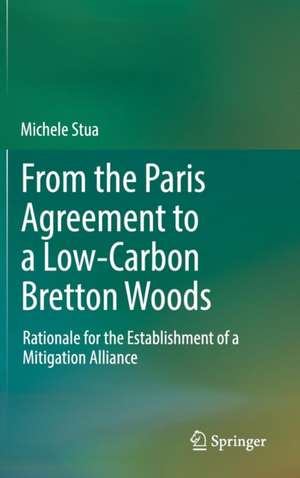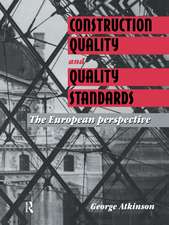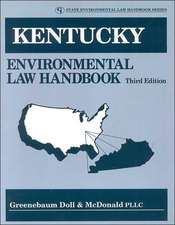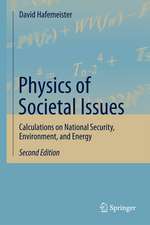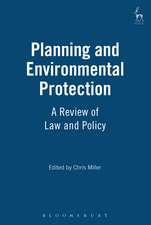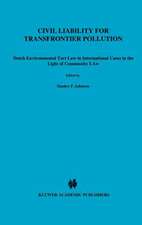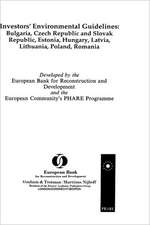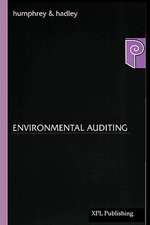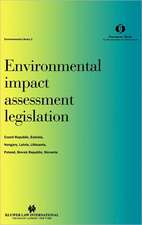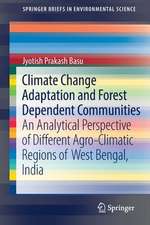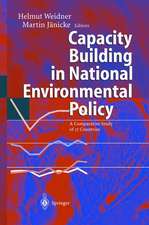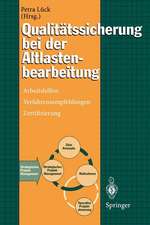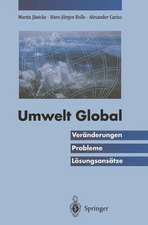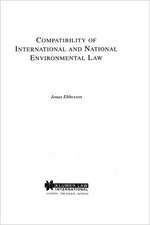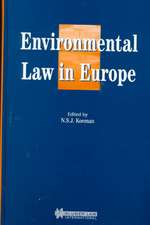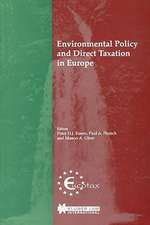From the Paris Agreement to a Low-Carbon Bretton Woods: Rationale for the Establishment of a Mitigation Alliance
Autor Michele Stuaen Limba Engleză Hardback – 10 mar 2017
- Which low-carbon pathways are compatible with the new temperature targets set by the Paris Agreement?
- Can new entities like the Carbon Club have a decisive role in guaranteeing the alignment of the aggregate mitigating actions with the global objectives identified within the Paris Agreement?
- What role will be played by market and non-marketapproaches within the proposed framework?
- How can economic, social, and environmental sustainability be ensured during the implementation of the Agreement?
- How can justice and equity be encouraged between the Parties and all the involved actors as required by the Agreement?
- Which instruments can be designed and adopted to provide the expected degree of transparency for the new system?
| Toate formatele și edițiile | Preț | Express |
|---|---|---|
| Paperback (1) | 725.13 lei 6-8 săpt. | |
| Springer International Publishing – 21 iul 2018 | 725.13 lei 6-8 săpt. | |
| Hardback (1) | 731.10 lei 6-8 săpt. | |
| Springer International Publishing – 10 mar 2017 | 731.10 lei 6-8 săpt. |
Preț: 731.10 lei
Preț vechi: 891.59 lei
-18% Nou
Puncte Express: 1097
Preț estimativ în valută:
139.91€ • 145.53$ • 115.51£
139.91€ • 145.53$ • 115.51£
Carte tipărită la comandă
Livrare economică 15-29 aprilie
Preluare comenzi: 021 569.72.76
Specificații
ISBN-13: 9783319546988
ISBN-10: 3319546988
Pagini: 260
Ilustrații: XXIII, 239 p.
Dimensiuni: 155 x 235 x 16 mm
Greutate: 0.54 kg
Ediția:1st ed. 2017
Editura: Springer International Publishing
Colecția Springer
Locul publicării:Cham, Switzerland
ISBN-10: 3319546988
Pagini: 260
Ilustrații: XXIII, 239 p.
Dimensiuni: 155 x 235 x 16 mm
Greutate: 0.54 kg
Ediția:1st ed. 2017
Editura: Springer International Publishing
Colecția Springer
Locul publicării:Cham, Switzerland
Cuprins
Preface.- Introduction: The Paris Agreement: Opportunities and Limits for Climate Change.- Part I – The Paris Agreement and the Carbon Club: Prominence of Article 6.- Part II The Carbon Club: Features and Structure within Article 6.- Part III the Governance of the Club and its Key Implications.- Part IV Conclusions: Scenarios and Policy Recommendations.
Notă biografică
Born in Udine, Italy, on 20 April 1973, Michele Stua is an independent researcher and analyst focusing on Climate Policy. In the past he has worked for Sant'Anna School for Advanced Studies in Pisa, where he obtained his PhD in 2011, developing an innovative research on the application of the Clean Development Mechanism (CDM) in China, and SPRU-Science Policy Research Unit, University of Sussex. His major efforts concerned the study of carbon mechanisms aimed at facilitating the trade of mitigation-related assets worldwide. His findings led to the definition of policy proposals introduced in different international contexts.
He directly collaborated with Brazilian authorities to the design of the proposals contained in the Brazil submission to the United Nations Framework Convention on Climate Change (UNFCCC) of November 2014, which eventually led to the inclusion of the Article 6 in the new International Agreement on Climate Change signed in Paris on December 2015.
Textul de pe ultima copertă
This book investigates the existing and possible links between the concept of a Carbon Club and the Paris Agreement. In doing so the book defines those criteria that may lead to an effective establishment of a Carbon Club acting within the mandate of the Paris Agreement and identifies the key questions that such an option may help to tackle:
- Which low-carbon pathways are compatible with the new temperature targets set by the Paris Agreement?
- Can new entities like the Carbon Club have a decisive role in guaranteeing the alignment of the aggregate mitigating actions with the global objectives identified within the Paris Agreement?
- What role will be played by market and non-market approaches within the proposed framework?
- How can economic, social, and environmental sustainability be ensured during the implementation of the Agreement?
- How can justice and equity be encouraged between the Parties and all the involved actors as required by the Agreement?
- Which instruments can be designed and adopted to provide the expected degree of transparency for the new system?
Caracteristici
Offers a fully designed policy roadmap to establish low-carbon societies worldwide Provides a unique view on climate change politics and finance Discusses elements of monetary economics and innovation technologies
